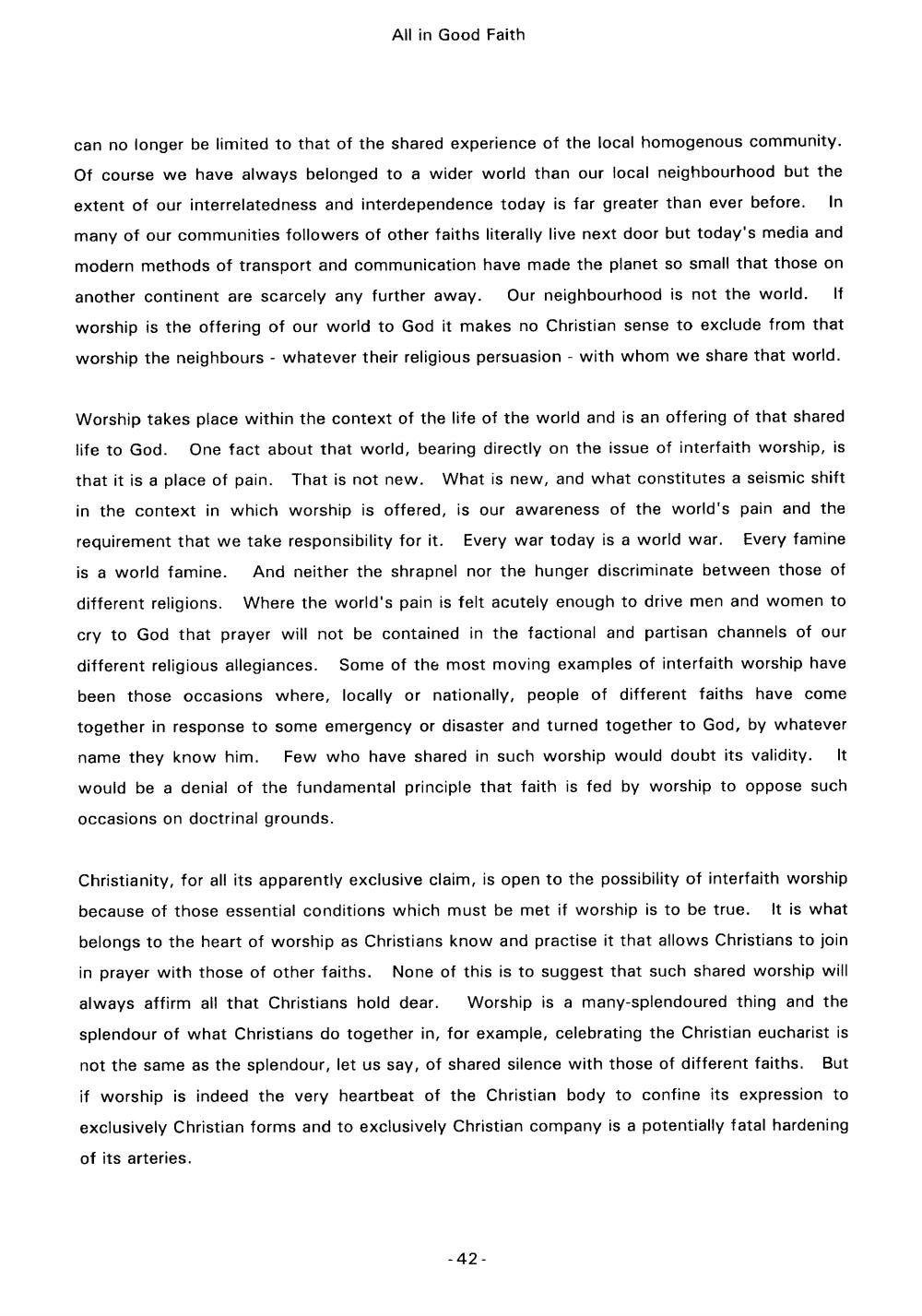________________
All in Good Faith
can no longer be limited to that of the shared experience of the local homogenous community. Of course we have always belonged to a wider world than our local neighbourhood but the extent of our interrelatedness and interdependence today is far greater than ever before. In many of our communities followers of other faiths literally live next door but today's media and modern methods of transport and communication have made the planet so small that those on another continent are scarcely any further away. Our neighbourhood is not the world. If worship is the offering of our world to God it makes no Christian sense to exclude from that worship the neighbours whatever their religious persuasion with whom we share that world.
Worship takes place within the context of the life of the world and is an offering of that shared life to God. One fact about that world, bearing directly on the issue of interfaith worship, is that it is a place of pain. That is not new. What is new, and what constitutes a seismic shift in the context in which worship is offered, is our awareness of the world's pain and the requirement that we take responsibility for it. Every war today is a world war. Every famine is a world famine. And neither the shrapnel nor the hunger discriminate between those of different religions. Where the world's pain is felt acutely enough to drive men and women to cry to God that prayer will not be contained in the factional and partisan channels of our different religious allegiances. Some of the most moving examples of interfaith worship have been those occasions where, locally or nationally, people of different faiths have come together in response to some emergency or disaster and turned together to God, by whatever name they know him. Few who have shared in such worship would doubt its validity. It would be a denial of the fundamental principle that faith is fed by worship to oppose such occasions on doctrinal grounds.
Christianity, for all its apparently exclusive claim, is open to the possibility of interfaith worship because of those essential conditions which must be met if worship is to be true. It is what belongs to the heart of worship as Christians know and practise it that allows Christians to join in prayer with those of other faiths. None of this is to suggest that such shared worship will always affirm all that Christians hold dear. Worship is a many-splendoured thing and the splendour of what Christians do together in, for example, celebrating the Christian eucharist is not the same as the splendour, let us say, of shared silence with those of different faiths. But if worship is indeed the very heartbeat of the Christian body to confine its expression to exclusively Christian forms and to exclusively Christian company is a potentially fatal hardening of its arteries.
-42




